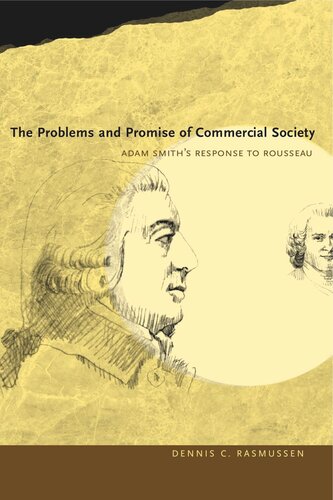

Most ebook files are in PDF format, so you can easily read them using various software such as Foxit Reader or directly on the Google Chrome browser.
Some ebook files are released by publishers in other formats such as .awz, .mobi, .epub, .fb2, etc. You may need to install specific software to read these formats on mobile/PC, such as Calibre.
Please read the tutorial at this link: https://ebookbell.com/faq
We offer FREE conversion to the popular formats you request; however, this may take some time. Therefore, right after payment, please email us, and we will try to provide the service as quickly as possible.
For some exceptional file formats or broken links (if any), please refrain from opening any disputes. Instead, email us first, and we will try to assist within a maximum of 6 hours.
EbookBell Team

0.0
0 reviewsAdam Smith is popularly regarded as the ideological forefather of laissez-faire capitalism, while Rousseau is seen as the passionate advocate of the life of virtue in small, harmonious communities and as a sharp critic of the ills of commercial society. But, in fact, Smith had many of the same worries about commercial society that Rousseau did and was strongly influenced by his critique.
In this first book-length comparative study of these leading eighteenth-century thinkers, Dennis Rasmussen highlights Smith’s sympathy with Rousseau’s concerns and analyzes in depth the ways in which Smith crafted his arguments to defend commercial society against these charges. These arguments, Rasmussen emphasizes, were pragmatic in nature, not ideological: it was Smith’s view that, all things considered, commercial society offered more benefits than the alternatives.
Just because of this pragmatic orientation, Smith’s approach can be useful to us in assessing the pros and cons of commercial society today and thus contributes to a debate that is too much dominated by both dogmatic critics and doctrinaire champions of our modern commercial society.